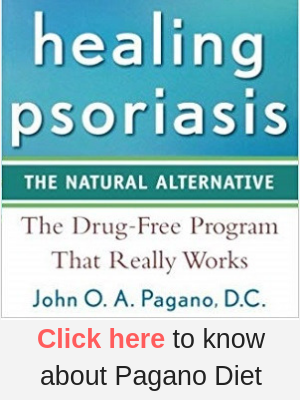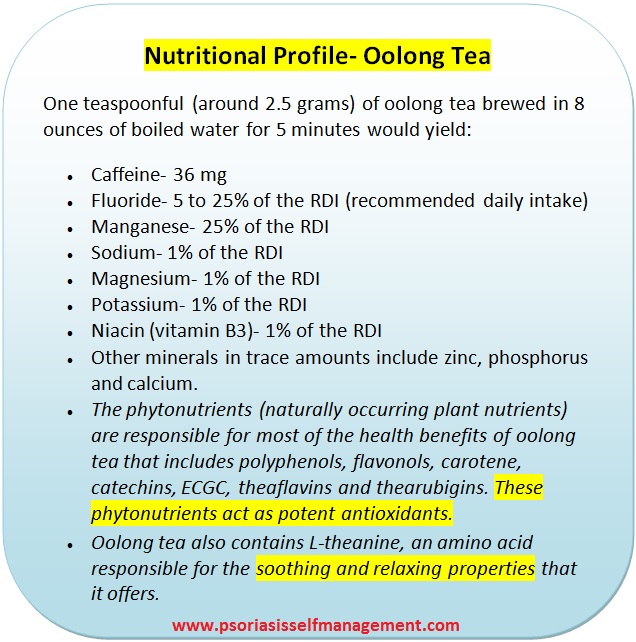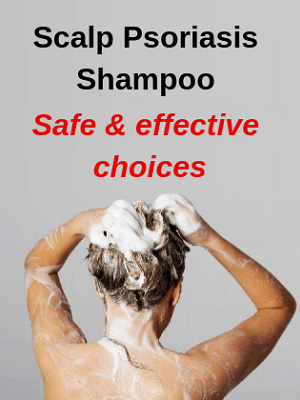A restricted, healthy diet plays the most important role in the holistic healing of psoriasis. But, it proves to be quite a difficult task to convince fellow psoriatic people to include radical changes in their diet.
Why is that?
There is a general, genuine complaint that the diet guidelines emphasize a lot on what not-to-eat without suggesting enough alternative options.
Well, I can fully understand that because eliminating foods from your regular diet without replacing them with proper alternatives can lead to nutritional deficiency in the long term. Also, undesirable weight loss in already slim people is a possible threat. To address this genuine concern, I try to write more and more about the alternative healing foods and drinks that we can include in our daily routine so that the diet protocol doesn’t feel like a torture.
In this post, we would discuss about Oolong tea- a natural tea which has healing properties close to green tea with a mild taste. The habitual coffee or black tea drinkers would find its taste more appreciable than green tea. Oolong tea seems a perfect option for those habitual coffee (or black tea) drinkers who wants to switch over to healthier options but just can’t deal with the bitter, grassy taste of green tea.
Let us know Oolong tea
Oolong tea is a traditional tea which is mainly grown and processed in parts of China and Taiwan. Green tea, black tea and oolong tea- all these tea varieties are manufactured from the leaves of a common plant- Camellia sinensis. The difference lies in the manufacturing process- mainly the oxidation (fermentation) step. During the oolong tea manufacturing process, the tea leaves are partially (semi) oxidized whereas black tea involves full oxidation and green tea involves direct drying (without oxidation). That’s why the oolong tea falls in between green tea and black tea, having several interesting health benefits. Due to semi oxidization, it has a distinct color, taste and aroma.
The oxidation rate for oolong tea varies from 10% to 70%. The 10% oxidized oolong tea would be close to green tea and 70% oxidized oolong tea would behave more closely to black tea.
Other names of Oolong tea- Wu long tea (local Chinese name), Black dragon tea, slimming tea
In short, oolong tea contains antioxidant phytonutrients, minerals, vitamins, amino acids and of course, caffeine.
What about the “Caffeine” thing
If you talk to any alternative health expert or do some research over the internet, there is a general impression that caffeine intake should be reduced to heal any autoimmune disorder including psoriasis. There are many logical reasons to support this guideline:
- Caffeine in excess can prove a gut irritant. It can damage the intestinal walls to worsen the symptoms of leaky gut syndrome.
- A caffeine-rich drink would be highly acidic in nature and highly acidic body pH is not good for psoriatic people.
- Caffeine-rich drinks would exert a dehydrating effect on the body to make your skin dry.
- Chronic inflammation is the root cause of many chronic diseases including type 2 diabetes, cancer, heart issues and autoimmune disorders. High intake of caffeine on a daily basis can spike up the inflammatory responses in the body to worsen these diseases.
Hence, one thing for sure- excessive consumption of caffeine is bad.
Now, let us learn about the daily limit of caffeine intake to ward off all the above threats.
One cup of brewed coffee contains around 100-130 mg of caffeine. Hence, a healthy adult can drink 3 to 4 cups of coffee every day without bothering much about the health hazards of caffeine.
But, when it comes to psoriasis (and psoriasis arthritis), we have to squeeze it more. In the famous book- Healing Psoriasis: The Natural Alternative– John Pagano has advised to cut down on daily coffee intake. According to Mr Pagano, the non-habitual coffee drinkers should eliminate it altogether and habitual ones should not go beyond 2 to 3 cups a day. Several of his patients witnessed marked improvement in their skin condition after giving up on coffee completely.
Caffeine content in Oolong tea
Just like coffee, all teas- green, oolong and black- contain caffeine in varying amounts. The caffeine content varies depending upon various factors including-
- Tea plant growing conditions
- Tea manufacturing process
- Tea brewing variables like water temperature, steeping time, loose tea leaves or tea bag
Considering all these factors, it is very difficult to give an exact figure and caffeine content is always suggested in ranges. Various attempts have been made to measure the caffeine content in various commercially available tea varieties and general ranges are suggested as below:
- In general, more the oxidation, more would be caffeine content. Hence, black tea contains maximum caffeine and green contains the least.
- Among various commercially available tea brands, the caffeine content of green tea and oolong tea are quite comparable.
- The caffeine content in green tea (or oolong tea) is almost 1/3rd to 1/4th that of brewed coffee.
In short, oolong tea seems a safe bet as far as the caffeine content is concerned.
Benefits of Oolong tea for Psoriasis- Research studies
Oolong tea contributes only 2% of the world’s total tea production whereas green tea is 20%. Hence, as of now, there are not enough research studies to evaluate the benefits of oolong tea for psoriasis and other autoimmune disorders. But, as oolong tea contains most of the healthy antioxidants and nutrients as in green tea, it does offer most of the health benefits linked to green tea.
Below studies discuss the benefits of green tea for autoimmune disorders including psoriasis and eczema.
- According to the researchers at the Linus Pauling Institute, Oregon State University, USA- ECGC, a naturally occurring antioxidant in green tea, has the ability to increase the number of regulatory T cells. These regulatory T cells can regulate the immune system to suppress the autoimmune response. Hence, drinking green tea regularly can prove a safe, effective way to manage various autoimmune disorders including psoriasis. However, the researchers advocate further studies with robust study designs for detailed findings.
The antioxidant polyphenols in green tea, particularly ECGC, can help reduce inflammation and the intensity of autoimmune response in the human body.
- An animal (mice) study reported in the Experimental Dermatology, Aug 2007 observed that external application of green tea solution on the psoriasis lesions can slow down the growth rate of skin cells to reduce the lesions thickness and scaling. PCNA is an antigen which can trigger an autoimmune response. Green tea components can reduce PCNA levels in the body. However, the researchers hinted at further human studies to determine the full effect.
- A case study reported in the Archives of Dermatology, Jan 2001 suggested the benefits of oolong tea for eczema when combined with the regular treatment. A total of 118 people dealing with chronic eczema drank 4 cups (32 ounces) of oolong tea every day along with the regular treatment protocol. Within one to two weeks, the improvement effect was noticed and after one month, 63% patients experienced significant improvement. Going further, it was a long term effect because even after 5 months from the treatment, the improvement effect persisted in 54% of the patients.The exact mode of action couldn’t be defined, but, hopefully, the antioxidants did the trick here. Antioxidants help reduce inflammatory responses in the body and slows down the skin cells growth process.
Oolong tea for Psoriasis- Beyond the research studies
Although oolong tea is yet to be studied for its healing effects on psoriasis, there are enough evidences to acknowledge its benefits for various health indicators which have a direct impact on psoriasis
- Boost up the body metabolism
Psoriasis is linked to a sluggish body metabolism and a compromised gut health.
Thanks to the antioxidants (particularly, the catechins) and caffeine- oolong tea boosts the body metabolism and increases energy expenditure to decrease the accumulated body fat and shed some pounds.
A case study published in the Journal of Medical Investigation, Aug 2003 involved eleven Japanese females (age 20+/-1 years). Two hours after drinking oolong tea, the body metabolism, measured in terms of energy expenditure, increased by 10% when compared to drinking plain water.
- Anti-obesity activity
Obesity and psoriasis have one thing in common- chronic inflammation. Various clinical trials across the world have concluded that reducing obesity and maintaining a healthy body weight can help in relieving psoriasis symptoms.
An animal (mice) study conducted by the researchers at the Ehime University, Japan discussed the anti-obesity action of oolong tea. The oral administration of oolong tea for 10 weeks to obese mice who were fed with high-fat diet resulted in significant weight loss. The fatty liver symptoms also got relieved. Hence, oolong tea can help in reducing obesity and fatty liver caused by a high-fat diet.
- Relief from stress and anxiety
Stress is certainly the most common trigger for psoriasis and regular drinking of oolong tea can prove a stress buster.
Beverages like tea and coffee are known as mind stimulants to increase mental alertness and make you feel energized. In coffee, it is only the caffeine that does the trick. But, in case of tea, it is a synergistic effect of caffeine, antioxidants and theanine.
Theanine, also known as L-theanine, is an amino acid with potent psychoactive properties- lifts the mood, relaxes the mind, enhances concentration and improves sleep quality. That’s why dietary supplements containing theanine are promoted for stress reduction and relaxation.
The overall neuroprotective action of tea is better than coffee as observed in various research studies.
For instance, a review published in the American Journal of Clinical Nutrition, July 2008 reported that tea consumption reduces the risk of brain impairment in older people. No association was observed between coffee intake and cognitive functions.
Due to less oxidation, oolong tea and green tea have more theanine and antioxidants than black tea.
Hence, the stress and anxiety fighting effect of oolong tea (and green tea) is better than black tea in the long run.
- Reduces inflammation
Free radicals are electron deficient simple molecules in human body which are highly reactive. In their quest to make up for the electron deficiency, these free radicals interact with cell components such as DNA, protein or skin lipids. The uncontrolled free radicals activity, also known as oxidative damage, is one of the main reasons for chronic inflammation. The antioxidants in oolong tea can neutralize these free radicals by donating electrons without getting unstable. Hence, the antioxidants in oolong tea can help reduce the inflammatory responses in your body when consumed regularly.
- Promotes healthy skin
The free radicals in your body can convert the healthy skin lipids into lipid peroxide to accelerate the process of aging and skin damage. The ill effects of free radicals on skin include aging, dark spots, pigmentation and sagging- free radicals slow down your body’s natural ability of skin exfoliation.
The antioxidants in oolong tea (and green tea) can help here.
A case study published in the Journal of Nutrition, April 2011- evaluated the photoprotection properties of green tea against the Sun’s UV rays. It was observed that regular drinking of green tea (4 cups a day) for a period of 3 months can help reduce skin redness, scaling and other symptoms of sun damage and aging.
Oolong tea for Scalp Psoriasis
More than half of the psoriatic people have psoriasis lesions on their scalp. Scalp inflammation, itching and dryness can result in severe hair fall and irritation.
How drinking oolong tea is going to help here?
- The anti-inflammatory properties of oolong tea antioxidants would reduce the scalp inflammation.
- The catechins, a type of antioxidants in oolong tea, increases the blood circulation to hair follicles to stimulate hair growth. These catechins aid in micro-capillary blood circulation to ensure enhanced supply of blood, oxygen and other nutrients to the hair follicles.
- Overproduction of DHT (dihydro testosterone) hormone is considered as one of the major reasons for early hair loss among adults. This hormone has a tendency to bind to the hair follicle receptors to make them shrink and cause hair fall. The antioxidants rich green tea can block its overproduction and check the hair fall problem. The oolong tea components react with testosterone and restrict them from converting into DHT to control the overproduction of DHT.
How many cups of Oolong tea per day
There is a general consensus among the alternative health experts across the world that 3 cups of oolong tea every day would be good enough to draw the optimum health benefits. Getting too aggressive and gulping a lot of oolong tea would not do any miracles. Rather, it can have some side effects such as frequent urination, diarrhea, headache or nausea, insomnia and restlessness.
In my opinion, drinking oolong tea around one hour before (or after) the meals would ensure that the antioxidants get full attention of the body metabolism. Avoid drinking it with the meals because a big part of the body metabolism would be busy processing the food stuff.
Don’t drink it empty stomach (in the morning) or before the breakfast. The first thing to drink empty stomach is some natural alkaline beverage like warm lemon water.
Don’t drink it late at night as it may cause insomnia.
Add one teaspoonful (2-2.5 grams) of oolong tea in 6-8 ounces (200-250 ml) of boiled water. Let it steep for 3-5 minutes, strain the tea and drink it. For convenience, you may use tea bags instead of loose tea leaves.
Oolong tea for external application
As discussed above, the external application of green tea proved to be beneficial in slowing down the skin cells growth and reducing the thickness of psoriasis lesions in mice. Hence, you can try your luck by pouring a few drops of oolong tea on affected body parts regularly for a few days and see if it work for you.
The psoriatic people are quite smart, right! So, why don’t you just pressed the already used tea leaves (or tea bag) against the psoriasis lesions.
A lot of natural/ herbal shampoos and hair fall topical solutions have oolong tea (or green tea) extracts as an active ingredient.
From where to buy
The color, aroma and taste of oolong tea would vary as per the oxidation percentage and other manufacturing conditions.
- The less oxidized oolong tea leaves would be light green in color and they would produce a golden colored tea solution.
- The more oxidized oolong tea leaves would be dark brown in color and would produce a reddish brown tea solution.
- The taste also varies from woody, earthy to fruity, buttery. It tastes milder than green tea for sure.
Buy good quality organic oolong tea from an herbal store near to you or check Amazon for some discounts: –
| USA readers | India readers | UK readers | |
|---|---|---|---|
| Oolong tea | Click here | Click here | Click here |
Conclusion
Oolong tea is not as popular as green tea, but catching up very fast as a low-caffeine, natural energy drink with a better taste.
Benefits of oolong tea for psoriasis are quite encouraging, but, it wouldn’t do any miracle. It would work more like a supplement- accelerating the healing effect of the real treatment protocol which includes restricted diet, positive lifestyle, intake of dietary supplements, stress management and use of natural topical shampoos, oils and creams.
References
https://en.wikipedia.org/wiki/Oolong
http://www.consumerlab.com/RDAs/
http://lpi.oregonstate.edu/mic/food-beverages/tea
http://www.efsa.europa.eu/en/press/news/150115
https://www.psychologytoday.com/blog/teen-angst/201305/over-caffeinated-teens
https://www.ncbi.nlm.nih.gov/pubmed/11176659
https://www.ncbi.nlm.nih.gov/pubmed/13678386
https://www.ncbi.nlm.nih.gov/pubmed/10094584
https://www.ncbi.nlm.nih.gov/pubmed/18614745
https://www.ncbi.nlm.nih.gov/pubmed/18296328
https://www.ncbi.nlm.nih.gov/pubmed/12766099
https://www.ncbi.nlm.nih.gov/pubmed/15277285
https://www.ncbi.nlm.nih.gov/pubmed/24989680
http://www.karger.com/Article/Abstract/261636
https://www.ncbi.nlm.nih.gov/pmc/articles/PMC2576011/
https://www.ncbi.nlm.nih.gov/pubmed/17092697
http://jn.nutrition.org/content/141/6/1202.full
http://www.sciencedirect.com/science/article/pii/S0165247811001258- IMMUNE
https://www.ncbi.nlm.nih.gov/pubmed/17620095
Image credit- www.teamountains.com






